Mercedes EQS SUV vs Peugeot 308 – Differences & prices compared
Compare performance, boot space, consumption and price in one view.
Find out now: which car is the better choice for you – Mercedes EQS SUV or Peugeot 308?
The Mercedes EQS SUV (SUV) comes with a Electric engine and Automatic transmission. In comparison, the Peugeot 308 (Hatchback) features a Diesel, Electric or Petrol MHEV engine with Automatic transmission.
When it comes to boot capacity, the Mercedes EQS SUV offers 645 L, while the Peugeot 308 provides 412 L – depending on how much space you need. If you’re looking for more power, decide whether the 658 HP of the Mercedes EQS SUV or the 156 HP of the Peugeot 308 suits your needs better.
In terms of consumption, the values are 19.60 kWh per 100 km for the Mercedes EQS SUV, and 15.60 kWh5 L for the Peugeot 308.
Price-wise, the Mercedes EQS SUV starts at 95000 £, while the Peugeot 308 is available from 28600 £. Compare all the details and find out which model fits your lifestyle best!
Mercedes EQS SUV
The Mercedes-Benz EQS SUV redefines luxury in the electric vehicle segment with its elegant design and cutting-edge technology. Its spacious interior provides exceptional comfort, featuring high-quality materials and innovative ambient lighting to create a serene driving environment. This SUV impressively combines sustainability with performance, offering a smooth and quiet ride without compromising on power.
details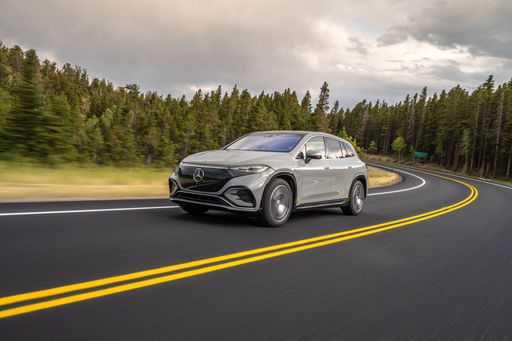 @ group-media.mercedes-benz.com
@ group-media.mercedes-benz.com
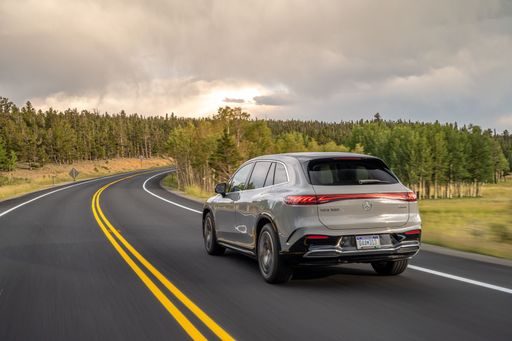 @ group-media.mercedes-benz.com
@ group-media.mercedes-benz.com
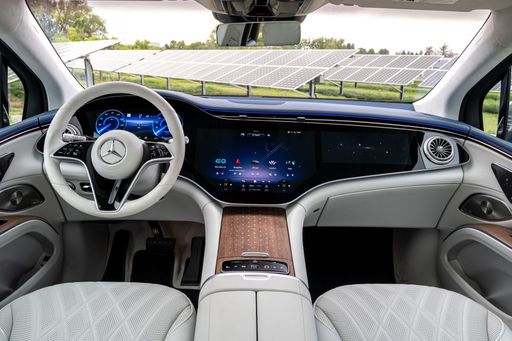 @ group-media.mercedes-benz.com
@ group-media.mercedes-benz.com
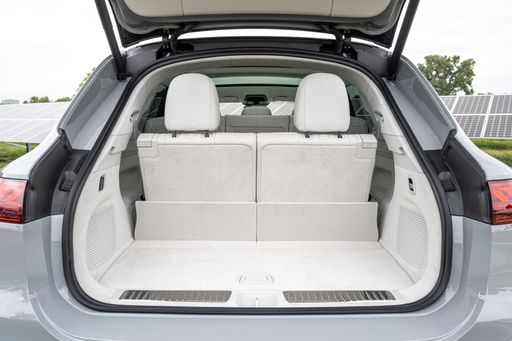 @ group-media.mercedes-benz.com
@ group-media.mercedes-benz.com
Peugeot 308
The Peugeot 308 presents a refined blend of style and sophistication, making it a compelling option for anyone in search of a dynamic yet practical vehicle. Its sleek design is complemented by a thoughtfully crafted interior that ensures both driver and passengers travel in comfort and elegance. Moreover, the 308 offers a responsive driving experience, combining agility with a sense of security on the road.
details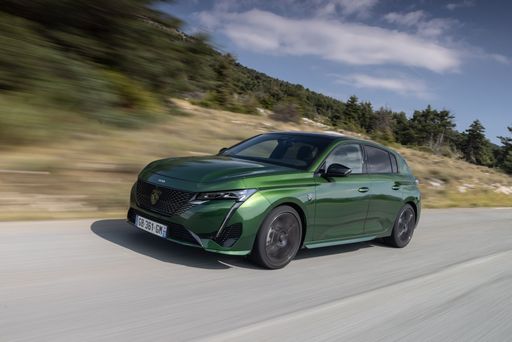 @ media.stellantis.com
@ media.stellantis.com
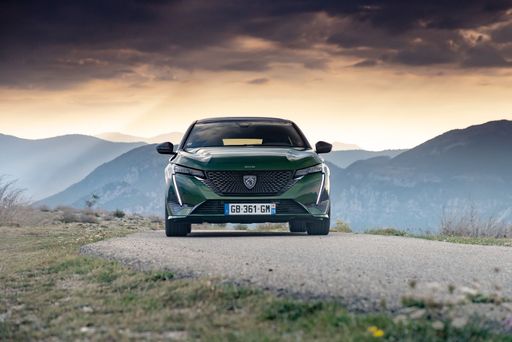 @ media.stellantis.com
@ media.stellantis.com
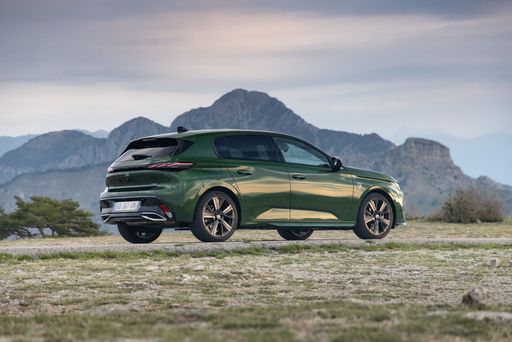 @ media.stellantis.com
@ media.stellantis.com
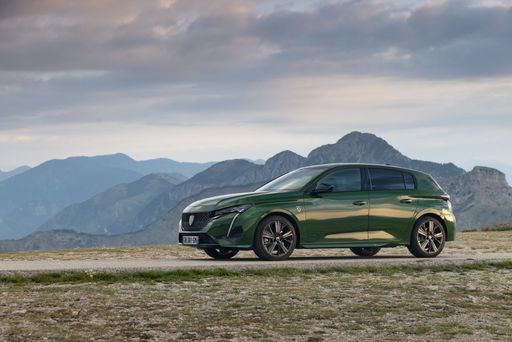 @ media.stellantis.com
@ media.stellantis.com
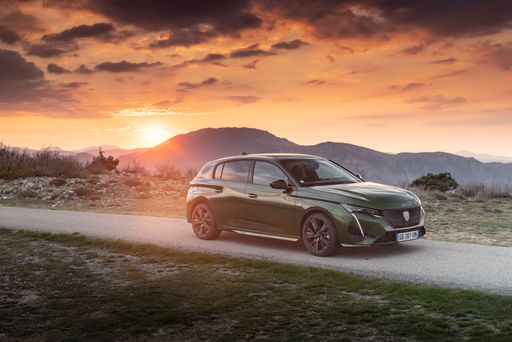 @ media.stellantis.com
@ media.stellantis.com
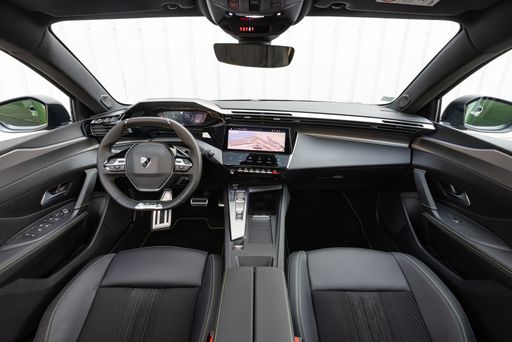 @ media.stellantis.com
@ media.stellantis.com

|

|
|
|
|
Costs and Consumption |
|
|---|---|
|
Price
95000 - 212100 £
|
Price
28600 - 41700 £
|
|
Consumption L/100km
-
|
Consumption L/100km
5 - 5.1 L
|
|
Consumption kWh/100km
19.6 - 21.9 kWh
|
Consumption kWh/100km
15.60 kWh
|
|
Electric Range
615 - 695 km
|
Electric Range
419 km
|
|
Battery Capacity
108.4 - 118 kWh
|
Battery Capacity
51 kWh
|
|
co2
0 g/km
|
co2
0 - 133 g/km
|
|
Fuel tank capacity
-
|
Fuel tank capacity
52 - 53 L
|
Dimensions and Body |
|
|---|---|
|
Body Type
SUV
|
Body Type
Hatchback
|
|
Seats
4 - 5
|
Seats
5
|
|
Doors
5
|
Doors
5
|
|
Curb weight
2695 - 3075 kg
|
Curb weight
1436 - 1759 kg
|
|
Trunk capacity
440 - 645 L
|
Trunk capacity
361 - 412 L
|
|
Length
5125 mm
|
Length
4367 mm
|
|
Width
1959 - 2034 mm
|
Width
1852 mm
|
|
Height
1718 - 1721 mm
|
Height
1441 mm
|
|
Payload
425 - 570 kg
|
Payload
431 - 510 kg
|
Engine and Performance |
|
|---|---|
|
Engine Type
Electric
|
Engine Type
Diesel, Electric, Petrol MHEV
|
|
Transmission
Automatic
|
Transmission
Automatic
|
|
Transmission Detail
-
|
Transmission Detail
Automatic Gearbox, Dual-Clutch Automatic
|
|
Drive Type
All-Wheel Drive, Rear-Wheel Drive
|
Drive Type
Front-Wheel Drive
|
|
Power HP
360 - 658 HP
|
Power HP
130 - 156 HP
|
|
Acceleration 0-100km/h
4.4 - 6.8 s
|
Acceleration 0-100km/h
9 - 10.6 s
|
|
Max Speed
210 km/h
|
Max Speed
170 - 210 km/h
|
|
Torque
568 - 950 Nm
|
Torque
230 - 300 Nm
|
|
Number of Cylinders
-
|
Number of Cylinders
3 - 4
|
|
Power kW
265 - 484 kW
|
Power kW
96 - 115 kW
|
|
Engine capacity
-
|
Engine capacity
1199 - 1499 cm3
|
General |
|
|---|---|
|
Model Year
2024
|
Model Year
2023 - 2025
|
|
CO2 Efficiency Class
A
|
CO2 Efficiency Class
D, A, C
|
|
Brand
Mercedes-Benz
|
Brand
Peugeot
|
Mercedes EQS SUV
Introduction to the Mercedes-Benz EQS SUV
The Mercedes-Benz EQS SUV stands as a testament to the capabilities of electric technology combined with luxury. Designed as an electric counterpart to its combustion-engine siblings, the EQS SUV offers opulent comfort, cutting-edge technology, and impressive performance metrics, all wrapped in a sustainable package.
Powertrain and Performance
At the heart of the EQS SUV lies a fully electric powertrain that varies across different models, offering power outputs ranging from 360 to 658 PS. These performance figures translate to an acceleration from 0 to 100 km/h in just 4.4 to 6.8 seconds, depending on the variant. The all-wheel drive configurations, with intricate dynamics and traction control, allow the EQS SUV to maintain optimal performance even in challenging conditions.
Battery and Range
The Mercedes-Benz EQS SUV offers a pioneering battery capacity of between 108.4 and 118 kWh. This substantial capacity contributes to the robust electric range of 599 to 709 km on a single charge, making long-distance travel feasible without frequent recharging stops. The efficiency of 19.1 to 22.5 kWh/100 km further demonstrates the SUV's capacity to maximise mileage while minimising energy consumption.
Interior and Comfort
Luxury is at the forefront of the EQS SUV's interior design. The cabin accommodates four to five passengers in an environment enriched with premium materials and state-of-the-art technology. The optional First Class 4MATIC line introduces seating and trim upgrades, ensuring a superior travel experience.
Technology and Innovation
The EQS SUV showcases Mercedes-Benz's commitment to innovation through features like the MBUX Hyperscreen, an expansive, high-resolution display that combines the instrument cluster, infotainment, and passenger display into a seamless unit. Advanced driver assistance systems further enhance safety and convenience, signalling Mercedes' ongoing pursuit of autonomous capabilities.
Exterior Design and Dimensions
Combining a sleek aesthetic with practical dimensions, the EQS SUV measures 5125 mm in length, 1959 to 2034 mm in width, and 1718 to 1721 mm in height. This design not only contributes to excellent aerodynamics but also maximises interior space, leading to a generous boot capacity of 440 to 645 litres.
Environmental Impact
With a CO2 efficiency class of A and zero direct emissions (0 g/km CO2), the EQS SUV embodies Mercedes-Benz’s commitment to a sustainable future. This electric SUV represents a key step in the company’s vision of electrification and reducing the automotive industry’s carbon footprint.
Conclusion
The Mercedes-Benz EQS SUV merges luxury with the practicality required for modern living, all while championing sustainability. Its wide range of performance options, expansive range, and innovative technologies make it a strong contender in the electric vehicle landscape, setting new standards for premium electric SUVs.
Peugeot 308
Unveiling the Peugeot 308: A Blend of Style and Innovation
The Peugeot 308, an exemplar of French automotive engineering, brings together sleek design, advanced technology, and efficient performance. This hatchback caters to a diverse range of drivers, from eco-conscious individuals to those seeking a spirited driving experience. Let’s delve into the technical details and innovative features that define the Peugeot 308.
Powertrain Options: From Conventional to Cutting Edge
The Peugeot 308 offers an impressive array of powertrains to suit varying preferences and needs. Whether you opt for a traditional petrol, a fuel-efficient diesel, a sophisticated plug-in hybrid, or the fully electric variant, the 308 ensures an engaging drive. Petrol and diesel engines offer power outputs ranging from 130 to 130 PS, catering to both urban commutes and highway drives. The plug-in hybrid variants, boasting up to 225 PS, promise a seamless blend of power and efficiency, with an electric-only range of up to 57 km, perfect for city driving.
Engineering and Efficiency: Striking a Balance
The engineering marvel lies in the Peugeot 308's commitment to efficiency without compromising on performance. The fuel economy stands out, with consumption figures between 1.3 L/100km for plug-in hybrids and 5.9 L/100km for petrol engines. The electric version showcases an impressive 15.6 kWh/100km, allowing an electric range of 419 km, making it a viable option for those looking to reduce their carbon footprint.
Anatomy of Design: Sleek and Functional
Peugeot’s design philosophy shines through in the 308, with a captivating combination of elegance and practicality. Its dimensions - 4367mm in length, 1852mm in width, and 1441mm in height - create a spacious yet maneuverable vehicle. The five-door hatchback accommodates up to five passengers, offering a comfortable journey while boasting a boot space of 361 to 412 litres.
Technological Innovations and Features
The 308's cabin is a testament to Peugeot's commitment to innovation. It features an intuitive digital i-Cockpit, offering a more engaging driving interface with a configurable 10-inch digital cluster and a high-definition central touchscreen. Advanced driver assistance systems ensure safety and convenience, including adaptive cruise control, lane-keeping assist, and automated emergency braking, which elevate the driving experience.
Performance and Dynamics: Designed for the Enthusiast
Performance in the Peugeot 308 is not merely a promise but a reality, with acceleration from 0-100 km/h achieved in 7.5 to 10.6 seconds depending on the model. The dynamic chassis ensures a stable and responsive driving experience, while the range of gearbox options, including a smooth automatic and a manual transmission, cater to different driving styles.
Conclusion: The Allure of the Peugeot 308
The Peugeot 308 epitomises the blend of style, efficiency, and innovation. It offers a diverse range of powertrain options, ensuring that there’s a 308 for every kind of driver. Whether you're drawn to its design, captivated by its technology, or impressed by its efficiency, the 308 stands as a testament to Peugeot's evolution in the modern automotive landscape.
The prices and data displayed are estimates based on German list prices and may vary by country. This information is not legally binding.
